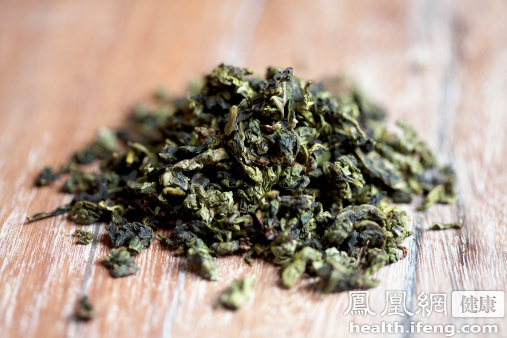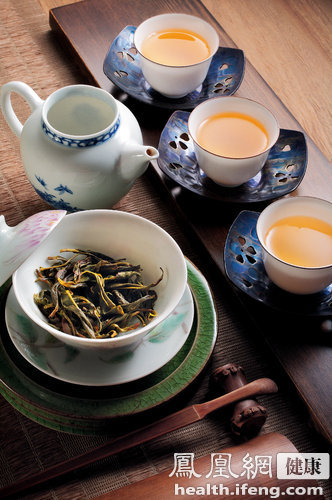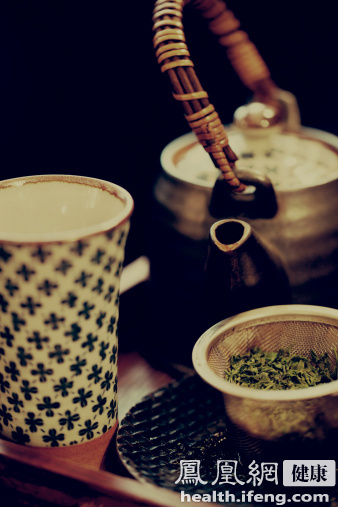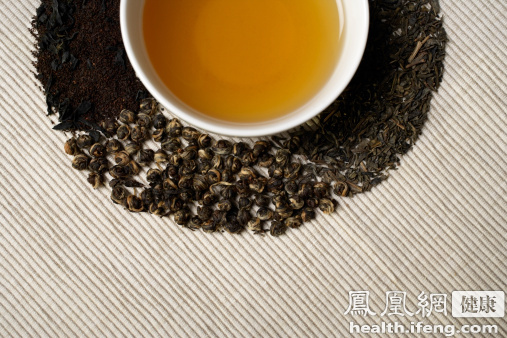In daily life, some people enjoy steeping tea leaves repeatedly until the flavor fades, while others prefer to change the tea after just one or two infusions. Which method is correct, and how many times should tea be steeped for the best results? A reporter interviewed Yin Junfeng, an associate researcher at the Tea Research Institute of the Chinese Academy of Agricultural Sciences.

Drinking tea this way maximizes anti-cancer effects (Image source: Oriental IC)
Yin Junfeng explained that while personal taste plays a role in how many times tea is steeped, from a nutritional perspective, bagged tea is best brewed only once, and loose-leaf tea should not exceed three infusions.
He elaborated that tea contains cancer-inhibiting polyphenols, blood sugar-lowering polysaccharides, caffeine that stimulates the central nervous system, and various amino acids and vitamins. The rate at which these nutrients are released depends on the number of infusions. Generally, larger tea leaves release nutrients more slowly, while smaller particles release them faster.
Compared to loose-leaf tea, bagged tea undergoes processing that breaks down leaf cells, resulting in smaller particles. About 80%–90% of the nutrients are released during the first 3–5 minutes of steeping, with the remaining 10% released in the second infusion. Therefore, Yin recommends brewing bagged tea only once for optimal nutrition and flavor. Loose-leaf tea, with its larger particles, should be steeped for about 5 minutes the first time, releasing 60%–80% of its nutrients. The second infusion releases 80%–90%, and by the third, over 95% of the nutrients are extracted, making further infusions nutritionally insignificant.
Regarding concerns about pesticides and heavy metals leaching into tea after multiple infusions, Yin noted that while this is theoretically possible, the risk is minimal. Most pesticides used in tea production have low water solubility, and even with 1 mg/kg residue, the intake per day would be a fraction of the WHO's safe limit. Heavy metals like lead also have low leaching rates, and tea from reputable manufacturers complies with safety standards.

Drinking tea this way maximizes anti-cancer effects (Image source: Oriental IC)
Additional reading: Grain-based teas offer exceptional health benefits.
Modern diets are often overly refined, leading to health issues like obesity, diabetes, hypertension, heart disease, and cancer. Whole grains are rich in nutrients and fiber, aiding detoxification and disease prevention. They can also be brewed into health teas, offering unique benefits for urban dwellers.
1. Blood-Nourishing Health Tea
For those with pale complexions, drinking this daily for two weeks can restore a healthy glow.
Mung beans, known for their cooling properties, help clear heat, promote urination, and soothe thirst. They are beneficial for heatstroke, food poisoning, and urinary issues.
Contraindications: Mung beans are cooling; avoid if you have a cold spleen/stomach or diarrhea. They may cause bloating, so consume in moderation if digestion is weak.
Ingredients: 30g mung beans, 30g red dates, brown sugar, 500ml water.
Method: 1. Rinse mung beans and dates, then boil in water. 2. Simmer until beans soften, add sugar, strain, and serve.
2. Blood-Activating Tonic Tea
Ideal for post-menstrual recovery or light periods.
Contraindications: High in purines and hard to digest; avoid if you have gout or poor digestion.
Ingredients: 100g black beans, 10g sappan wood, brown sugar, 700ml water.
Method: 1. Rinse black beans. 2. Boil with sappan wood until tender, remove solids, add sugar, and serve.

Drinking tea this way maximizes anti-cancer effects (Image source: Oriental IC)
3. Anti-Inflammatory Eye Tea
Soybeans, rich in lecithin and vitamins, improve cardiovascular health, menopause symptoms, and dementia. Their protein is dubbed "meat from the fields."
Contraindications: High in purines; avoid if you have gout or high uric acid. Contains trypsin inhibitors; cook thoroughly.
Ingredients: 30g soybeans, 15g mulberry leaves, 700ml water.
Method: 1. Rinse ingredients, boil, then simmer until tender. Strain and serve.
4. Liver-Boosting Detox Tea
Drink before meals to detoxify and alleviate chronic hepatitis.
Red beans promote diuresis and blood replenishment, aiding weight loss and menstrual health.
Contraindications: Mild diuretic effect; consume in moderation if urination is frequent.
Ingredients: 50g red beans, 25g peanuts (with skin), 15g red dates, 15g brown sugar, 700ml water.
Method: 1. Rinse red beans and peanuts, soak dates. 2. Simmer beans and peanuts for 1.5 hours, add dates and sugar, simmer 30 minutes, strain, and serve.

Drinking tea this way maximizes anti-cancer effects (Image source: Oriental IC)